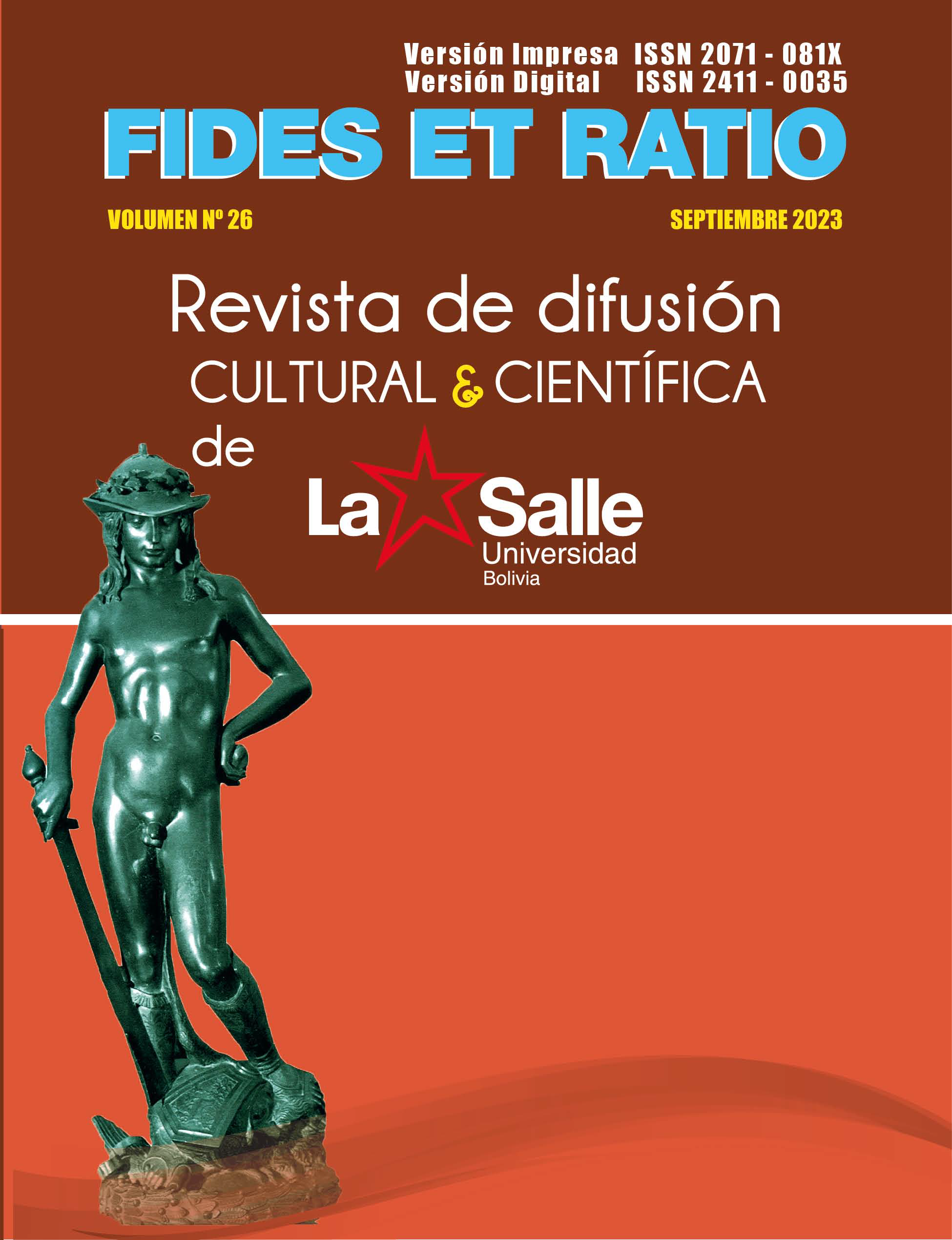Difficulty establishing contributory capacity within an informal economy in Bolivia
- Authors
-
-
Javier Hinojosa Dorado
, Instituto de Investigaciones en Ciencias Sociales y Jurídicas, Universidad La Salle, La Paz- BoliviaAuthor
-
- Keywords:
- Contributive capacit, tribute, tax, consumption, income, patrimony, autorithy tax, tax power, Rule of Law
- Abstract
-
In the present research work, an attempt was made to address a truly delicate issue such as the contributory capacity of citizens in Bolivia, considering it as a material limit to the tax power that the government has, an issue that should always be kept in mind when legislators are planning to create, modify and even extinguish certain taxes. For this purpose, the definition of the tax power and the limits to it have been established, within a Rule of Law and the different parameters that should be taken into account will be analyzed when determining in the best possible way this contributory capacity, that is, income, wealth and consumption. Likewise, an attempt was made to identify the difficulties that legislators and specialists face with the establishment of contributory capacity, especially in a trade as informal as the Bolivian one. Having exposed these concepts and the problems of the research topic, we attempted to reach the corresponding conclusions and recommendations.
- Downloads
-
Download data is not yet available.
- Author Biography
- Downloads
- Published
- 2023-09-28
- Section
- Artículos
- License
-
Copyright (c) 2023 Universidad La Salle

This work is licensed under a Creative Commons Attribution-NonCommercial-ShareAlike 4.0 International License.
How to Cite
Similar Articles
- Ricardo J. Llanque Ferrufino, Verónica E. Llanque Ferrufino, Proposal to develop tourism and related activities in rural areas (Creation of community businesses in a CSR approach) , FIDES ET RATIO: Vol. 28 No. 28 (2024): Fides Et Ratio
- Richard Matienzo López, Unconstitutionality of Bolivian Law 494, for being contrary to the International Corpus Juris of Human Rights based on Conventionality criteria , FIDES ET RATIO: Vol. 30 No. 30 (2025): Fides Et Ratio
- Gerardo F. Ludeña González, David Efraín Misari Torpoco, Kirchmann and the impact of the accident study on the right of the 21st century , FIDES ET RATIO: Vol. 18 No. 18 (2019): Fides Et Ratio
- Georgina María Nina Luna, Rubén Alejandro Gamarra Pérez, Foundations for the inclusion of the Unipersonal Limited Liability Company in the Bolivian legislation. , FIDES ET RATIO: Vol. 20 No. 20 (2020): Fides Et Ratio
- Daniela Grace Aliaga Churruarrin, The reuse of wastewater in mining with a focus on circular economy , FIDES ET RATIO: Vol. 25 No. 25 (2023): Fides Et Ratio
- Alex Danny Chambi Rodriguez, Kinetic modeling of Saccharomyces cerevisae var. boulardii , FIDES ET RATIO: Vol. 21 No. 21 (2021): Fides Et Ratio
- Juana Isabel Callisaya Argani, Life stories to sensitize the learning of Inclusive Education in the Education career , FIDES ET RATIO: Vol. 22 No. 22 (2021): Fides Et Ratio
- Jorge Rafael Diaz Dumont, Mildred Jénica Ledesma Cuadros, Sofia Rojas Vargas, Luis Pablo Diaz Tito, The four knowledge of education as continuous training in companies , FIDES ET RATIO: Vol. 19 No. 19 (2020): Fides Et Ratio
- Elva Mónica Armas Muñoz, Violeta María De Piérola García, The fundamental right to the identity of the child against the order of priority of their surnames , FIDES ET RATIO: Vol. 24 No. 24 (2022): Fides Et Ratio
- Patricio Olivares Valenzuela, Manuel Jesús Sepúlveda Leyton, Camila Belén Caamaño Salgado, Joaquín Andrés Hernández Salgado, Nicol Vaitiare Bugueño Lartigo, Javiera Elizabeth Chancafe Dueñas, Cognitive and emotional aspects of purchase intention in innovative consumers , FIDES ET RATIO: Vol. 27 No. 27 (2024): Fides Et Ratio
You may also start an advanced similarity search for this article.










